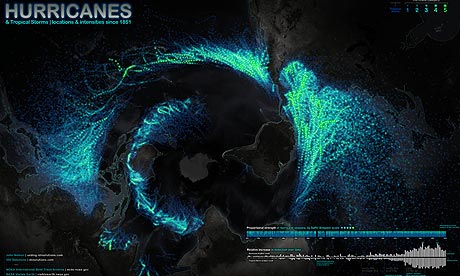THE ORGANIZATION OF AMERICAN STATES AND WORLD WATER DAY
2013 International Year for Water Cooperation
Please see below a celebrating and insightful article aimed towards adaptation to climate variability and change for increasing resilience.
What happened this week?
Honduras. Heavy rains lash northern Honduras
Heavy rains in the past few days have damaged several areas in northern Honduras. According to reports from Lisandro Rosales, Director of the Permanent Commission of Contingencies in Honduras (COPECO, abbreviation in Spanish), flooding occurred in places like La Ceiba which saw 45 millimeters of rain in less than 24 hours. And 23 people were evacuated due overflow of the Cangrejal river, then later place in the Fire Department of La Ceiba for shelter. In communities like El Pital and Yaruca are currently cut off due to a landslide that had happened late Tuesday night. Weather reports claim that on Friday and Saturday the conditions will stabilize and the Caribbean coast should remain on green alert until then.
USA. A landslide on Whidbey Island, Washington forces 34 homes to be evacuated
Just before 4:00 AM a massive landslide occurred on the coast of Whidbey Island, Washington. Only one home was swept away, amazingly no one was injured, and 34 homes, sitting at the edge of the hillside, were forced to evacuate. An area prone to landslides, this bluff had been under examination by geologists just one day before the disaster struck. The area that had slid into the water stretches from 400 to 500 yards and 600 to 700 yards in depth.
Mexico. Authorities manage to control 80% of the fires in San Luis Potosí
Fires that occurred this weekend in Ciudad Valles, San Luis Potosi, are controlled by 80%, confirmed Monday Luis Felipe Puente, head of Civil Protection in the Ministry of Interior. Luis explained, "What we caused the largest number of fires was that the winds were over 60 miles per hour and caused to be increased." At the moment, 350 people have been placed in shelter and one woman has been found dead due to the fires.
What's new in Disaster Risk Reduction?
USA. Disaster Medical Assistance Team draws from Maine, Vermont and New Hampshire
A highly specialized and trained Disaster Medical Assistance Team has formed from Maine, New Hampshire and Vermont to provide assistance in the wake of any natural or man-made disaster or national security event. New Hampshire-1, or NH-1, draws from personnel across New England and is prepared to rapidly deploy and provide on-scene medical care. The 56-member team has a broad array of expertise in emergency and wilderness medicine, toxicology, pharmacology, EMS, respiratory therapy, orthopedics, trauma and emergency nursing, and radiological protection.

